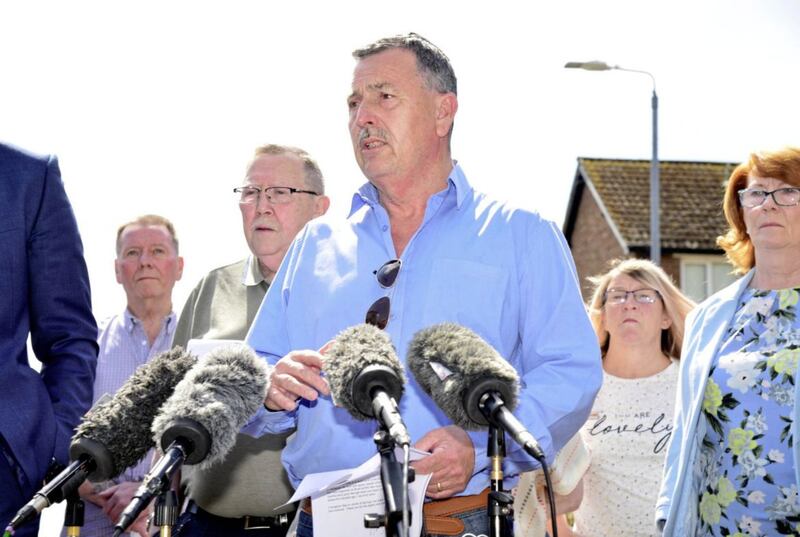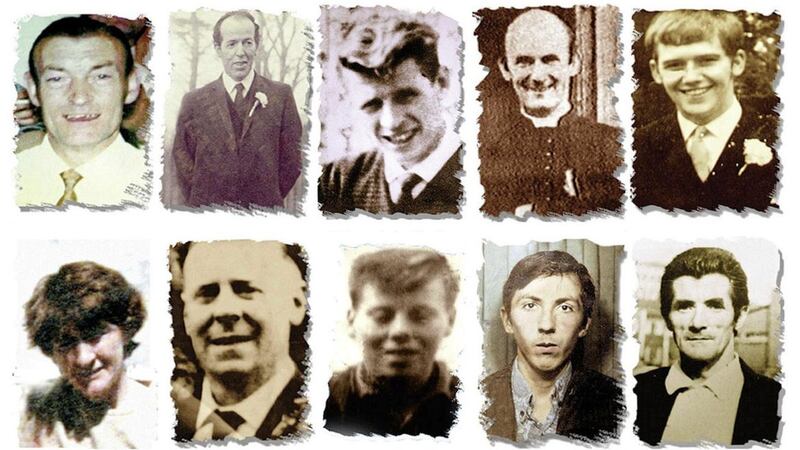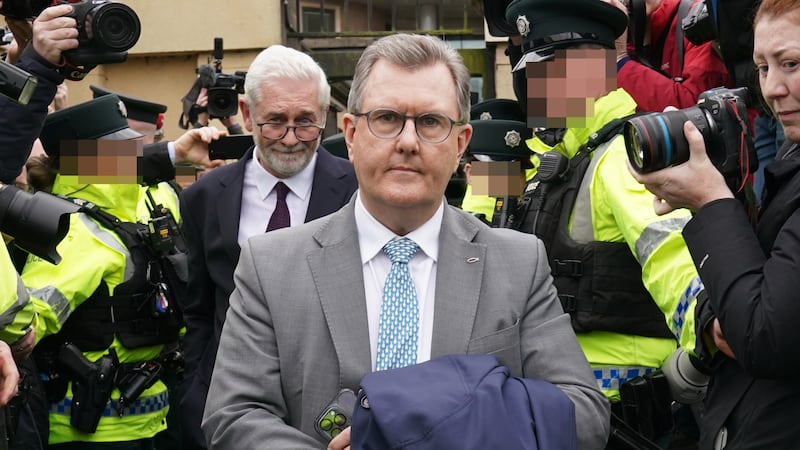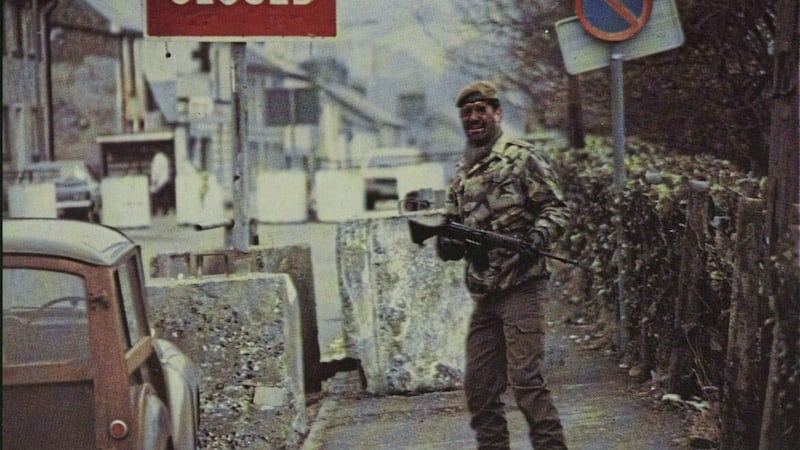It took almost five decades, but in May this year a coroner found that the 10 civilians killed in Ballymurphy, west Belfast, over three days in August 1971 were "entirely innocent".
The British army was found to be responsible for nine of the 10 deaths, which included a mother-of-eight and a Catholic priest.
However, campaigner John Teggart, whose father Danny was among those killed, said the joy of the victims' families was short-lived.
The next day, Prime Minister Boris Johnson sent a letter in which he apologised for "the events at Ballymurphy" - an apology the families felt was flippant and insincere.
Mr Teggart said Mr Johnson's apology was "off the cuff" and families had not been consulted about the contents of the letter.
"The celebrations were short-lived," he said.
"It was an insincere apology because in the same breath they said they were going to legislate for an amnesty."
The British government's legacy proposals, formally announced last month, have re-traumatised the families, Mr Teggart said.

Under the plans, which Mr Johnson said would allow Northern Ireland to “draw a line under the Troubles”, Troubles-related prosecutions, legacy inquests and civil actions related to the conflict will end.
Mr Teggart said the Ballymurphy families' campaign, culminating in the inquest, had "shocked" the government.
"We used their laws against them and now they want to bring in new laws to protect those who murdered our loved ones," he said.
A march to mark the 50th anniversary of the killings will leave Springfield Park from noon tomorrow. The route, which will pass several places where victims were killed, is already lined with black flags.
The families had hoped to hold a major event in May, following the outcome of the inquest, but could not do so due to stricter Covid restrictions.
Mr Teggart said he expects several thousand people to attend tomorrow's march, which aims to highlight the ongoing plight of victims from all sides of the community.
"We're expecting a big turn-out," he said.
"We're expecting a lot of people who have been affected by the proposal of the British government to bring in an amnesty (on prosecutions), close down inquests, close down civil cases. It's affected lots of people."
"People are invited to come along with their individual photos (of their loved ones). There are a lot of people who aren't involved in big campaigns like ourselves. There are individuals who are sitting in the house, traumatised by the proposals of the British government."
The landmark inquest into the Ballymurphy killings lasted between November 2018 and March 2020.
Every day, the families arrived together at Laganside courts in Belfast where they listened to more than 100 days of evidence.
But the inquest only came about following a 20-year campaign by victims' families.
For decades, the families, most of whom were children when their loved ones were killed, suffered in silence.
That all changed in 1998 when some of the victims' relatives attended a conference at St Mary's College in Belfast about forgotten deaths of the Troubles, organised by campaign group Relatives For Justice (RFJ).
The chance meeting led to the start of a campaign.
Weekly meetings, in which the families shared information, led to a fuller picture of what had happened - often contrary to the accounts given by the British army.
They learned Corpus Christi curate Fr Hugh Mullan (38) and Francis Quinn (19) had been shot in an area of open ground behind Springfield Park.
Daniel Teggart (44), Joan Connolly (44), Noel Phillips (19) and Joseph Murphy (41) had been shot near the Henry Taggart Army base.
John Laverty (20) and Joseph Corr (43) had been shot at separate points at the top of Whiterock Road and Edward Doherty (31) at the corner of Brittons Parade and Whiterock Road.
John McKerr (49), a father-of-eight, was a joiner and former Royal Engineer soldier from Andersonstown. He was working at Corpus Christi Church when he was shot.
Paddy McCarthy, a community worker from England, died from a heart attack after a soldier allegedly put an empty gun into his mouth and pulled the trigger - his death was not included in the inquest.
After more than a decade of painstaking work, the Ballymurphy families were heartened by the 2010 Saville Inquiry into the Bloody Sunday killings.
However, hopes that they would get their own statutory investigation were repeatedly dashed. In 2014, then Secretary of State Theresa Villiers rejected an independent re-examination of the killings.
It was only in 2016, when Lord Chief Justice Sir Declan Morgan recommended an inquest as one of a series of "legacy inquests" did the families begin to have hope.
Mr Teggart said the Ballymurphy inquest should be the standard for all families
A total of 45 legacy inquests - relating to 82 deaths - remain outstanding.
Mr Teggart said the government was "trying to close down what victims on both sides want".
He added: "It'll be a solemn march. We're going to remember our loved ones but also celebrate what we've achieved up until now.
"We're working class family members... So many blockages were put in front of us.
"This isn't just about us. Other families have been affected by these proposals. We're giving them a platform and a chance to come forward. It doesn't matter who your loved one was. It's a cross-community event.
"There will be no political speakers. It's just victims' families."
He said the lengthy Ballymurphy campaign had "been hard on the families" but they had no regrets.
"It's taken its toll but the strength and dignity of the families carried our campaign through," he said.








